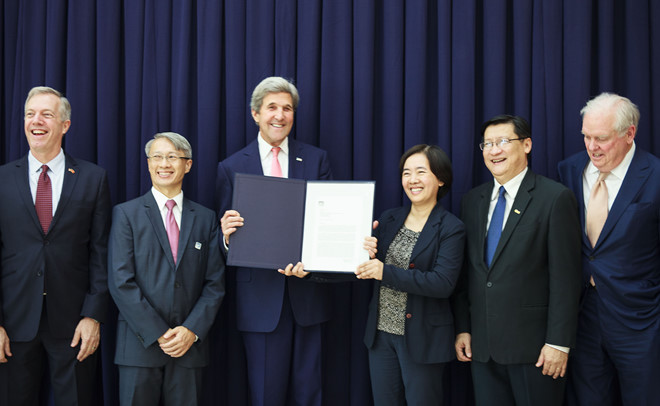Continuing the success of the Fulbright Speakers’ Series: The World Beyond a Book, Fulbright University Vietnam is delighted to host a chat with Prof. Dr. Pham Quang Minh at our Crescent campus in District 7, Ho Chi Minh City. In this exciting in-person chat coming up on Saturday morning February 26, Prof. Dr. Pham Quang Minh will enlighten us on his recent research publication “The Unend of History: Vietnam’s reforms from a regional comparative perspective (“Lich Su Khong Cao Chung”: Doi Moi Cua Viet Nam Nhin Tu Goc Do So Sanh Khu Vuc).
During the second half of the 1980s, the world witnessed several structural and global changes. It was the end of the Cold War, followed by the disintegration of the Soviet Union, the collapse of people’s democracy in Eastern European countries, and the bipolarity that existed for more than 50 years since World War II (1947-1989). Witnessing such drastic changes, Prof. Francis Fukuyama published an essay called “The End of History” which first appeared in the political magazine “The National Interest” in 1989. Based on Fukuyama’s argumentation, the dissolution of the Soviet Union and the bipolar world caused the end of ideological evolution while the Western liberal democracy triumphed as the ultimate model of human governance in the future.
Notwithstanding, from the late 1970s and mid-1980s, socialist countries in general with China and Vietnam specifically carried out reforms, opened up, implemented policies that aligned with people’s needs and followed global development trends, thus, achieving many significant achievements in politics, economy, culture, society, national defense and other areas. The question remained why Asian countries namely China, Laos, and Vietnam succeeded in transforming their centrally planned economy to socialist-oriented market economy while establishing a people’s democratic state and gradually creating a new state model. There, even though the state is still led by the Communist Party, the economy has many components. On the contrary, why did Eastern European countries, despite having a higher level of economic development, not succeeded in institutional reform, economic development transformation, and social management? To answer these queries, Prof. Dr. Pham Quang Minh will shed light on a number of key factors causing the collapse of the Soviet Union and Eastern European countries. Meanwhile, the author will clarify the success of East Asian socialist countries and analyze some characteristics of Vietnam’s reformation pathway. The success of reformation in East Asian countries namely China, Laos, and Vietnam revealed “The End of History” argumentation’s limitations in reflecting the full diverse global development. Each nation has its own development path, hence, in-depth studies in different regions are much needed.
Join Fulbright in this exciting in-person chat with Prof. Dr. Pham Quang Minh!
⏰9:30 – 11:00 AM on Saturday, February 26, 2022 (Vietnam time, GMT +7)
Classroom 501, Floor 5, Crescent Campus, Fulbright University Vietnam
👉 Register at: https://bit.ly/FSS_GSPhamQuangMinh
***
Fulbright Speakers’ Series is a quest for knowledge and understanding with diverse incisive viewpoints of prominent authors, both in Vietnam and globally, venturing into a myriad of topics ranging from development history and current Vietnam in the context of globalization, to the importance of mental health in being a compassionate community member.
About the speaker:
Pham Quang Minh is a Professor of History and Politics at the University of Social Sciences and Humanities, Vietnam National University-Hanoi. After receiving his Ph.D. in Southeast Asian Studies from Humboldt University in Berlin, Germany in 2002, he became Deputy Dean, and then Dean of the Faculty of International Studies. In January 2016, he was promoted to be the Rector. Currently, he is Chair of the Department of International Development Studies at the Faculty of International Studies, University of Social Sciences and Humanities.








